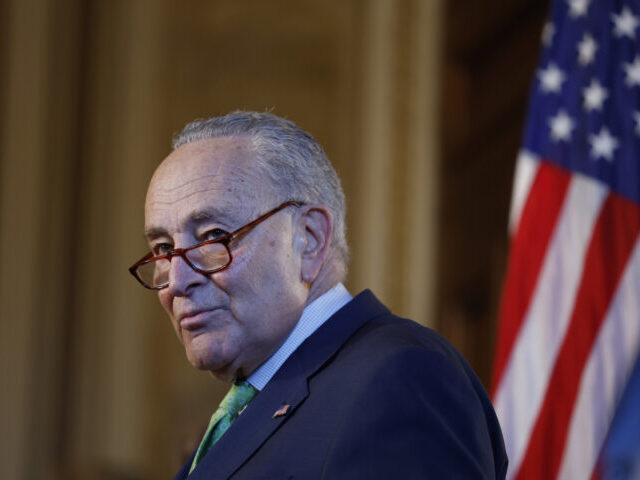from Vince Dao
Consumer Sentiment Dragged Down by Democrat Panic and Inflation Fears
by John Carney
Breitbart.com
 Consumer sentiment fell in January for the first time in six months, with inflation concerns and a sharp drop in perceptions of current conditions among Democratic voters driving the decline.
Consumer sentiment fell in January for the first time in six months, with inflation concerns and a sharp drop in perceptions of current conditions among Democratic voters driving the decline.
The University of Michigan’s sentiment index dropped to 71.1, its lowest in three months, from 74 in December. The decline was more pronounced than preliminary data suggested, underscoring growing unease about the economy’s trajectory.
Consumers reported feeling better about their personal finances and said incomes were stronger. But assessments of business conditions, the labor market, and economic growth slumped.
“While assessments of personal finances inched up for the fifth consecutive month, all other index components pulled back,” the director of the survey, Joanne Hsu, said in a statement.
JD Vance Gives Economics Lesson For CBS Host Trying Gotcha Question On Inflation
by Hailey Gomez
DailyCaller.com
 Vice President J.D. Vance outlined how President Donald Trump is executing his economic plan Sunday on CBS after host Margaret Brennan repeatedly questioned when voters will feel inflation ease.
Vice President J.D. Vance outlined how President Donald Trump is executing his economic plan Sunday on CBS after host Margaret Brennan repeatedly questioned when voters will feel inflation ease.
During his campaign, Trump vowed to address voters’ concerns about the cost of living, as many Americans were worried about the U.S. economy and rising grocery prices before the 2024 November election. On CBS’ “Face the Nation,” Brennan asked Vance which executive order signed by Trump in his first week of office addresses the issue of lowering prices.
“We have done a lot and there have been a number of executive orders that have caused already jobs to start coming back into our country, which is a core part of lowering prices,” Vance responded. “More capital investment, more job creation in our economy is one of the things that’s going to drive down prices for all consumers, but also raise wages so that people can afford to buy the things that they need.”
Do Money Supply, Deficit and QE Create Inflation?
by Lance Roberts
Real Investment Advice

I recently debated with Michael Pento, who made an interesting statement that increases in the money supply, the deficit, and a return to quantitative easing (QE) will lead to 1970s-style inflation. The recent experience of inflation in 2021 and 2022 would seem to justify such a view. However, is that historically the case, or was the recent inflationary surge due to a different set of drivers? In today’s post, we will examine the money supply represented by M2, the Federal budget deficit, the Fed’s previous adventures with QE, and the correlation to inflation.
Let’s begin with the money supply. One common mistake the “inflation is coming back” crowd makes is focusing on increases in the money supply. Their key argument is that the government is “printing money out of thin air, destroying the dollar’s value.” This argument has two fallacies.
Forecasting the Upcoming Week: The Fed, ECB and Inflation Will Rule the Sentiment
A dreadful week saw the US Dollar (USD) deepen its retreat from the cycle highs recorded in mid-January, driven by persistent uncertainty surrounding President Trump’s trade and tariff policies, as well as comments advocating lower interest rates.
by Pablo Piovano
FX Street
 The US Dollar Index (DXY) added to previous losses, breaking below the key support at 107.00 to reach new five-week lows as market participants adjusted to President Trump’s inconclusive view on tariffs as well as his defence of lower interest rates. The Chicago Fed National Activity Index will kickstart the US docket on January 27, followed by New Home Sales and the Dallas Fed Manufacturing Index. Durable Goods Orders, the FHFA’s House Price Index, the CB Consumer Confidence, and the Richmond Fed Manufacturing Index all come on January 28 prior to the API’s report on US crude oil inventories. On January 29, the FOMC event will take centre stage, seconded by the weekly Mortgage Applications by MBA, the advance Goods Trade Balance figures, and the EIA’s report on US crude oil supplies. The usual weekly Initial Jobless Claims are due on January 30 along with Pending Homes Sales and another estimate of the US Q4 GDP Growth Rate. The publication of US inflation tracked by the PCE will be in the spotlight on January 31, followed by Personal Income/Spending and the Employment Cost index.
The US Dollar Index (DXY) added to previous losses, breaking below the key support at 107.00 to reach new five-week lows as market participants adjusted to President Trump’s inconclusive view on tariffs as well as his defence of lower interest rates. The Chicago Fed National Activity Index will kickstart the US docket on January 27, followed by New Home Sales and the Dallas Fed Manufacturing Index. Durable Goods Orders, the FHFA’s House Price Index, the CB Consumer Confidence, and the Richmond Fed Manufacturing Index all come on January 28 prior to the API’s report on US crude oil inventories. On January 29, the FOMC event will take centre stage, seconded by the weekly Mortgage Applications by MBA, the advance Goods Trade Balance figures, and the EIA’s report on US crude oil supplies. The usual weekly Initial Jobless Claims are due on January 30 along with Pending Homes Sales and another estimate of the US Q4 GDP Growth Rate. The publication of US inflation tracked by the PCE will be in the spotlight on January 31, followed by Personal Income/Spending and the Employment Cost index.
Silver (XAG) Forecast: Is the Fed’s Inflation Outlook the Catalyst Silver Bulls Need?
Silver closed at $30.59, holding the bullish $30.44 pivot. Can Fed policy shifts and China’s outlook drive a breakout above $31?
by James Hyerczyk
FX Empire
 Why Did Silver Struggle to Break $31.00?
Why Did Silver Struggle to Break $31.00?
Silver prices closed last week at $30.59, up 0.80%, managing to stay on the bullish side of the $30.44 pivot, which now controls the market’s direction on the weekly chart. While the metal briefly traded above $31.00, it failed to sustain momentum, underscoring traders’ hesitation despite a supportive macro backdrop?.
The uncertainty stems largely from mixed signals in industrial demand. China, the world’s largest silver consumer, remains a focal point, with speculation about tariff reductions and infrastructure investments offering hope for demand growth.
The Daily Money: Can Trump Fix Inflation?
by Daniel de Visé
USA Today
 Good morning! It’s Daniel de Visé with your Daily Money.
Good morning! It’s Daniel de Visé with your Daily Money.
Apologies: President Trump is having such a busy first week, we feel like we’re playing catchup.
Amid the flurry of actions Trump took his first day in office Monday was a memorandum calling on federal agencies to find ways to solve what Americans have called their biggest financial burden: inflation.
The memo signified Trump’s effort to swiftly address a historic post-pandemic spike in consumer prices. Inflation is a chief reason Americans said they disapproved of former President Joe Biden and voted for Trump over former Vice President Kamala Harris.
Can Trump fix inflation?
Fox Business Reports Price of Eggs Has Risen 37%: ‘Nearly $9 Per Dozen in Some Areas’
by Sarah Rumpf
Mediaite
 Inflation — especially the cost of essentials like housing, groceries, and gas — was a major issue for many voters in last November’s election, but President Donald Trump may find it easier said than done to get the price of eggs down, according to a Fox Business report.
Inflation — especially the cost of essentials like housing, groceries, and gas — was a major issue for many voters in last November’s election, but President Donald Trump may find it easier said than done to get the price of eggs down, according to a Fox Business report.
An article by Fox News Digital breaking news writer Alexandra Koch noted that egg prices “are up 36.8% from this time last year,” according to the Consumer Price Index.
Data compiled by the U.S. Bureau of Labor Statistics showed that a dozen Grade A large eggs — the most popular type offered in most grocery stores across the country — cost $2.51 in December 2023 and increased to $4.14 a year later, in December 2024.
Inflation-Protected Treasuries Draw Highest Yield Since 2009
by Elizabeth Stanton
Yahoo! Finance
![]() (Bloomberg) — An auction of inflation-protected US Treasuries on Thursday drew the highest yield in more than a decade.
(Bloomberg) — An auction of inflation-protected US Treasuries on Thursday drew the highest yield in more than a decade.
[…] The $20 billion sale of 10-year Treasury Inflation-Protected Securities, or TIPS, was awarded at 2.243%, the highest result since January 2009 and about a basis point higher than the indicated yield at 1 p.m. New York time, the bidding deadline. While Treasury yields of all types have been gradually rising and linger shy of their 2023 peak levels, auctions capture yields only once per month.
The rise in inflation-protected yields reflects “a combination of underlying growth fundamentals and the market pricing in longer-term real term premium as a result of concerns about the fiscal outlook,” said Michael Pond, head of global inflation-linked market strategy at Barclays Capital Inc. “The economy has held up well despite higher rates.” The Federal Reserve’s ongoing reduction in its holdings of Treasuries is also a factor, he said.
Netflix Raises Prices 16%, Peter Schiff Warns of Escalating Inflation Risks Ahead of Trump Policies
by Kaustubh Bagalkote
Benzinga.com
 Netflix Inc. announced a 16% price increase for its standard streaming plan on Tuesday, prompting economist Peter Schiff to warn of persistent inflation risks ahead of potential policy shifts under President Donald Trump‘s administration.
Netflix Inc. announced a 16% price increase for its standard streaming plan on Tuesday, prompting economist Peter Schiff to warn of persistent inflation risks ahead of potential policy shifts under President Donald Trump‘s administration.
What Happened: The streaming giant raised its ad-free standard plan from $15.49 to $17.99 monthly while increasing its premium tier to $24.99 and the ad-supported option to $7.99.
The price hikes coincided with Netflix’s robust fourth-quarter earnings report, which showed revenue climbing 16% year-over-year to $10.25 billion and subscriber growth of 18.91 million, bringing total paid memberships to 301.63 million.
Schiff, a vocal critic of current monetary policy, cautioned on X that the Netflix price increase signals broader inflationary pressures. “The lull in the inflation storm is over. The consequences of inflationary monetary policy that finally showed up under Biden will kick into a higher gear under Trump,” he wrote.
Eleven Reasons Why the Federal Reserve is Bad
by Michael Snyder
The Economic Collapse Blog
 Most Americans realize that the federal government is drowning in debt and that inflation is out of control. But very few Americans can coherently explain where money comes from or how our financial system actually works. For decades, bankers that we do not elect have controlled America’s currency, have run our economy into the ground, and have driven the U.S. government to the brink of bankruptcy. The Federal Reserve is an institution that was designed to drain wealth from U.S. taxpayers and transfer it to the global elite. Have you ever wondered why a sovereign nation such as the United States has to borrow United States dollars from anyone? Have you ever wondered why a sovereign nation such as the United States does not even issue its own currency? Have you ever wondered why we allow a group of unelected private bankers to run our economy?
Most Americans realize that the federal government is drowning in debt and that inflation is out of control. But very few Americans can coherently explain where money comes from or how our financial system actually works. For decades, bankers that we do not elect have controlled America’s currency, have run our economy into the ground, and have driven the U.S. government to the brink of bankruptcy. The Federal Reserve is an institution that was designed to drain wealth from U.S. taxpayers and transfer it to the global elite. Have you ever wondered why a sovereign nation such as the United States has to borrow United States dollars from anyone? Have you ever wondered why a sovereign nation such as the United States does not even issue its own currency? Have you ever wondered why we allow a group of unelected private bankers to run our economy?
Those are some very important questions. Hopefully what you are about to read will open the eyes of many. The truth is that our financial system is centrally-controlled and centrally-managed by a group of banking oligarchs who oversee a constantly expanding debt spiral which could come crashing down at any time. If the American people truly understood how our system works, they would be protesting in the streets right now. The following are 11 reasons why the Federal Reserve is bad…
